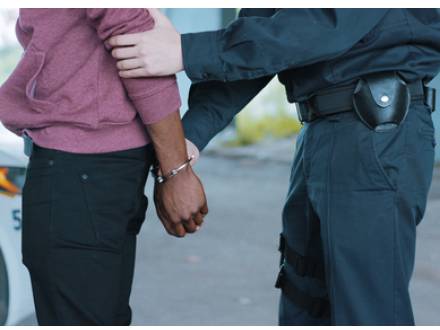Can You Sue a Police Officer for Using Excessive Force?
 Most people know that when you get injured in a car accident that is caused by someone else’s negligence, you can pursue compensation from the responsible person or an insurance company. Likewise, if someone breaks into your house, kills your spouse, and steals your property, you can pursue a claim against that person in civil court for the losses you experience.
Most people know that when you get injured in a car accident that is caused by someone else’s negligence, you can pursue compensation from the responsible person or an insurance company. Likewise, if someone breaks into your house, kills your spouse, and steals your property, you can pursue a claim against that person in civil court for the losses you experience.
But those are examples involving private citizens. What happens if someone is injured or has their civil rights violated by a government official, especially when that official is acting in the capacity of their role as a government agent? What happens, for example, if a police officer illegally profiles someone and uses that illegal profiling to wrongly search, arrest, and use excessive force on that person, causing injuries and trauma?
There are laws protecting civilians from civil rights violations. However, cases involving civil litigation against government officials are more complicated and subject to stricter regulations than personal injury actions against private citizens. If you think your civil rights have been violated by a government employee, talk to a Milwaukee, WI Section 1983 attorney right away.
Federal Civil Rights Statute Offers Protection to Civilians Injured by Government Officials
The United States Constitution, along with the 1964 Civil Rights Act, guarantees civil rights and liberties to Americans and even certain non-citizens. If a "state actor" or an employee of a local or federal government violates a person’s civil rights while acting in their official capacity, that person can take action against the state actor in civil court under a statute called Section 1983.
State actors that may be found liable under Section 1983 include, but are not limited to:
-
Municipal governments
-
Police officers
-
State and federal government employees
-
Prison guards
-
Judges
In addition to excessive force during arrests, other examples of behaviors that may be covered by Section 1983 include:
-
Denying benefits to welfare recipients based on racial profiling
-
Mixing members of opposite gangs in prison cells
-
Malicious prosecution
-
Illegal searches and seizures
-
Sexual assault
Limits to Section 1983
A successful Section 1983 case rests on a key phrase: "under color of law." This important term means that, in order to be sued under Section 1983, a government official must be acting - or claim to be acting - within their official government capacity. To continue the example we used earlier, a police officer who has used excessive force against a civilian during an arrest must have been on duty and in uniform or flashed their badge or otherwise given the impression that they were a police officer.
Furthermore, actions brought under Section 1983 are subject to statutes of limitations, which are different depending on the reason for the action and where the alleged civil rights violation occurred. For example, personal injury cases (such as those involving excessive force by a police officer) must typically be brought within two years of the violation, but this varies by state.
Contact Our Milwaukee, WI Police Brutality Attorneys Now
Under the right circumstances, it is possible to pursue a successful claim against a government agent, but you need to act fast and have a skilled Milwaukee, WI civil rights violation attorney on your side. At Gimbel, Reilly, Guerin & Brown, LLP, we understand the complex laws that govern these cases so you do not have to. Call 414-271-1440 for a consultation to learn more about your options.







